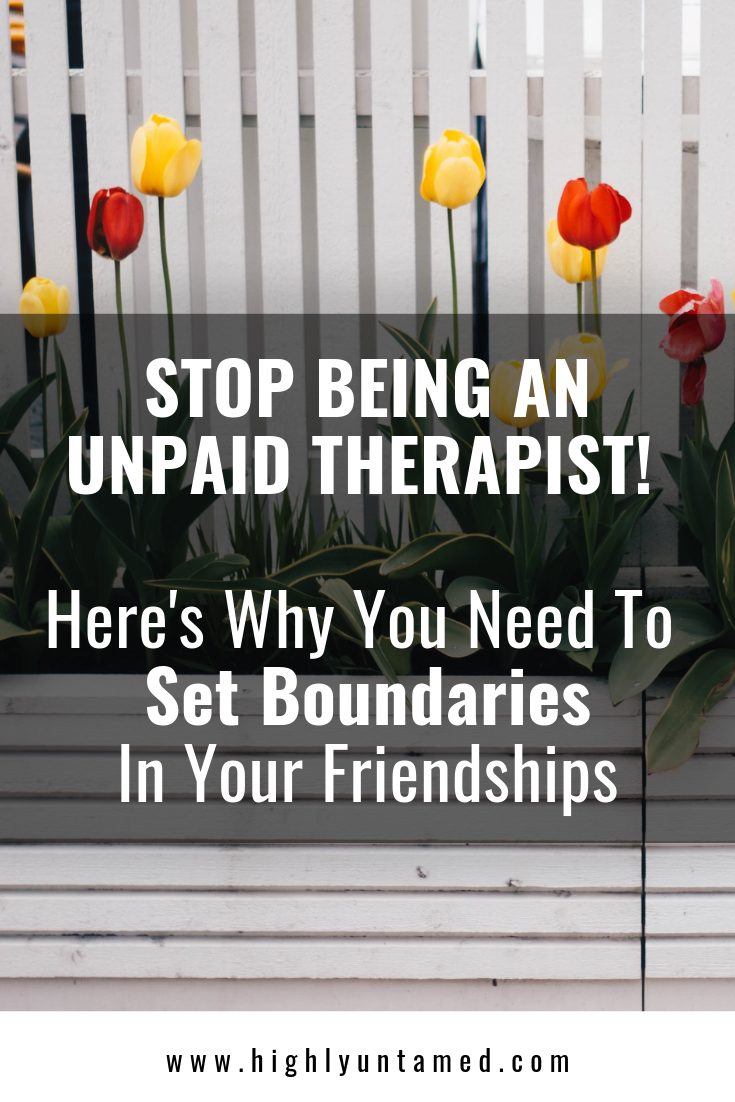My year of hell started at the end of June 2017 when I walked outside of my job to see that the driver’s side window of my car was completely shattered. From there, it’s just been a series of unfortunate events (for lack of a better term). But I’m not writing this to complain about how bad my luck has been. These events made me completely re-evaluate my relationships with my friends.
When my troubles were small enough for me to handle, I didn’t feel the need to go to any of my friends to seek their support. I could take care of my problems myself and didn’t want to unload them on someone else. The issue was that almost all of my friends treated me as the “therapist friend.” I genuinely loved and cared about them, so I didn’t mind. I was invested in their well-being, successes, and failures. I wanted to be there for them, and it made me sad when they were dealing with something that was hurting them, no matter how petty it was. I figured that if something really terrible happened to me, they’d be there for me with love and support — no questions asked.
Unfortunately, I was wrong.
A Lack Of Reciprocation (And Basic Empathy)
That August, I was essentially kicked out of my house by my mother. I had less than two months to pack up everything I owned and move into an apartment. A few days later, I got into a car accident that totaled my car and left me with daily back pain. On top of all of this, my stepmother was basically on her deathbed, and I couldn’t be with her because she and my father lived over 1,000 miles away.
My friends were aware of all of these things yet they never asked me how I was doing or if I needed any help. Instead, they complained to me about minor annoyances, such as small disagreements at work or cable bill prices (I’m not joking). I tried my best but I couldn’t handle their emotional loads when I already had too much on my plate.
When I Set Boundaries In My Friendships
I asked most of my friends to give me some time to myself for a little while because of everything that was going on. A reasonable request, I thought. Yet, some of them ignored that and still continued to message me or try to make plans with me. Others just stopped talking to me completely, even after I tried to initiate conversation months after the fact. Then there were those who would ask me how I was doing, only to then dump all of their depressive and suicidal thoughts on me, without my consent.
Why You Should Consider Setting Boundaries
Why did I just go through all of this? Because I think it’s important to illustrate why we should never set ourselves on fire to keep someone else warm. It’s cliché as hell but it’s true.
If you’re an empath, always casting your emotions aside to help someone you love seems like the natural thing to do. But it’s not — and you shouldn’t. Some people will use you for your emotional energy and toss you to the side when you can’t give any more. It sucks having to go against your natural instinct, which is to reach out, show that you care, and even try to solve another person’s problems. You can still be there for your friends without getting deep into their emotions.
Remember to take a step back and protect yourself and your feelings. It might be hard to put yourself first, but it’s one of the best ways to prevent other people from taking advantage of you (whether they realize they’re doing it or not).
You shouldn’t have to wait until a catastrophic event to know who cares about you and who you can depend on. Your friends should show you that they take an interest in your life, thoughts, and feelings in your normal, day-to-day conversations. If they’re not, then it’s time to reevaluate your friendship or even just end it entirely. It’ll hurt, but there are far better ways to spend your time instead of being an unpaid therapist.
Save this post on Pinterest!





